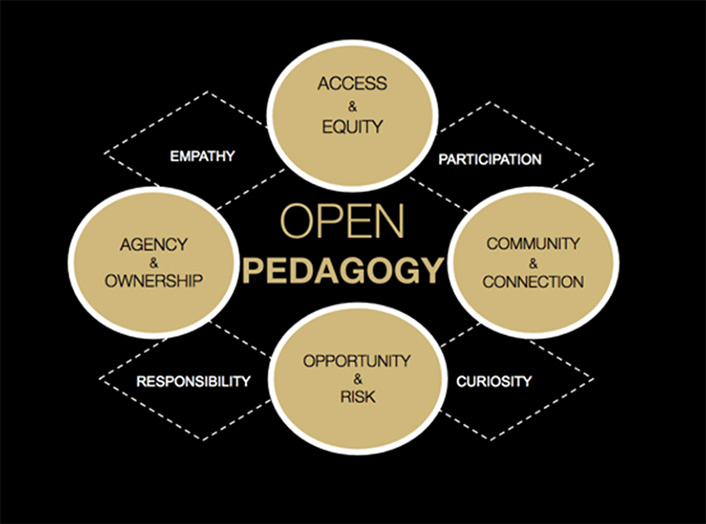Learn more about how the Cal Poly Humboldt Library can help
support your research and learning needs.
Stay updated at Campus Ready.
“Open Pedagogy" ... is a site of praxis, a place where theories about learning, teaching, technology, and social justice enter into a conversation with each other and inform the development of educational practices and structures.
 Open Pedagogy Notebook
Open Pedagogy Notebook

 by Rajiv Jhangiani and Robin DeRosa
by Rajiv Jhangiani and Robin DeRosa
“Open pedagogy, variously defined, comprises a number of core tenets: agency of students in their own learning, creative or innovative ways of learning, and participatory technological tools that enable community learner-generated outcomes."
 Open Pedagogy Approaches
Open Pedagogy Approaches
Open pedagogy is a type of experiential learning that allows students to take command of their education by creating their own scholarly materials. Instead of passively absorbing knowledge, adopting open pedagogy means that students are actively contributing to knowledge-making. Though not always or necessarily the case, open pedagogy is often coupled with openly licensed materials, meaning that the work students do in the class will go on to help other students in future classes or even the greater academic community at large.
Open pedagogy assignments are shared outside of the context of a classroom. They come in many forms from creating blogs and websites to editing or adding Wikipedia articles to setting up on-campus events. Some professors have the students develop open education resources (OER) like textbooks. Some choose to get students in contact with other scholars and academics through social media platforms like Twitter.

![]() "Open pedagogy: habits and values" from The Values of Open Pedagogy by Caroline Sinkinson
"Open pedagogy: habits and values" from The Values of Open Pedagogy by Caroline Sinkinson
The focus of open pedagogy is manifold. Underlying its approach to classroom curricula are four principles: